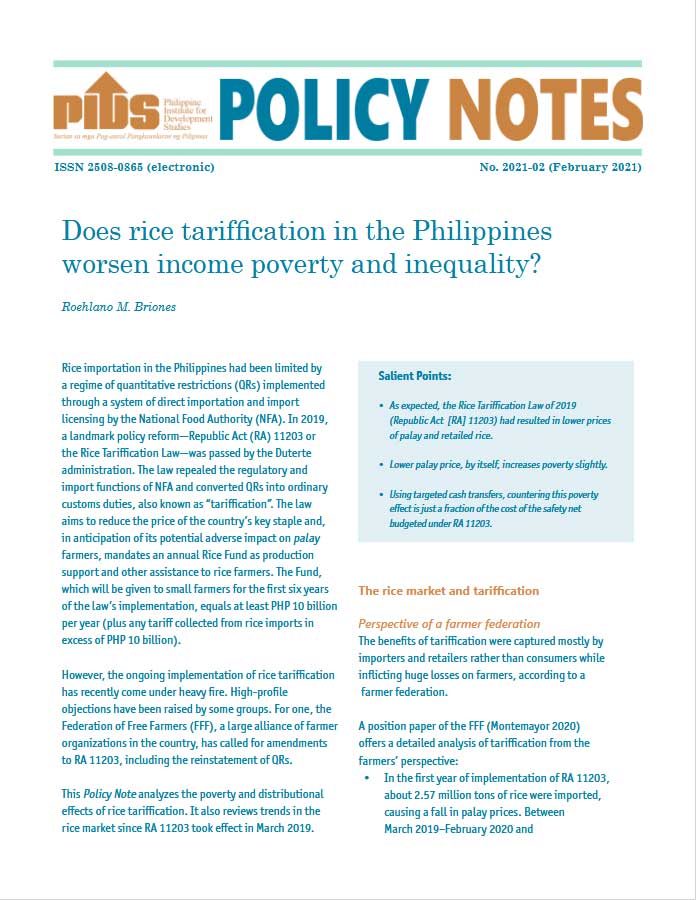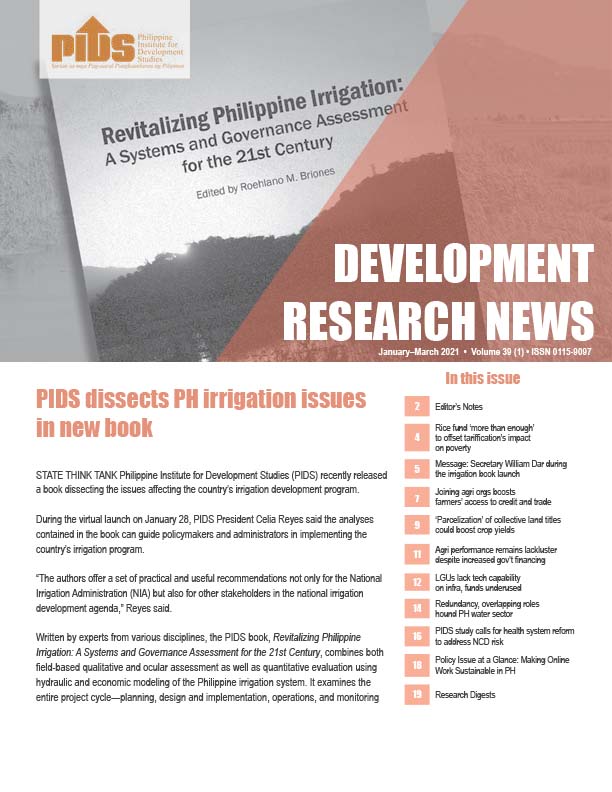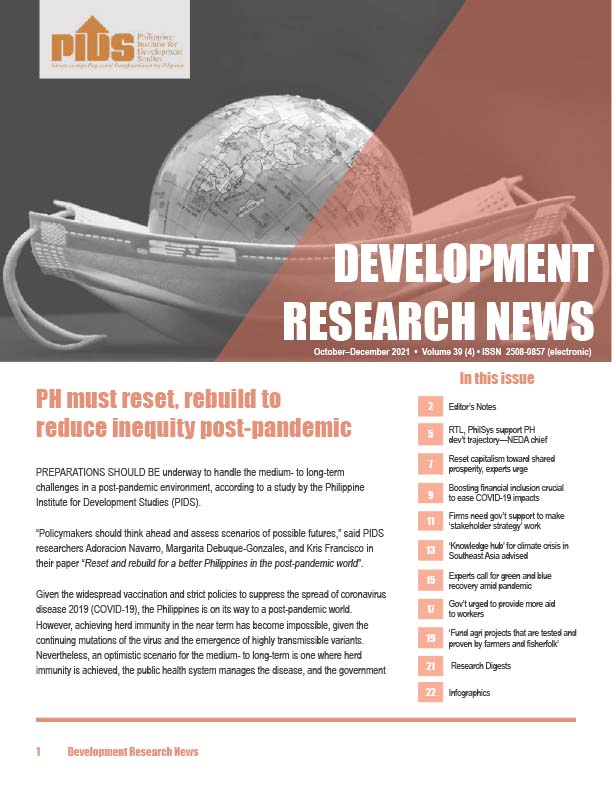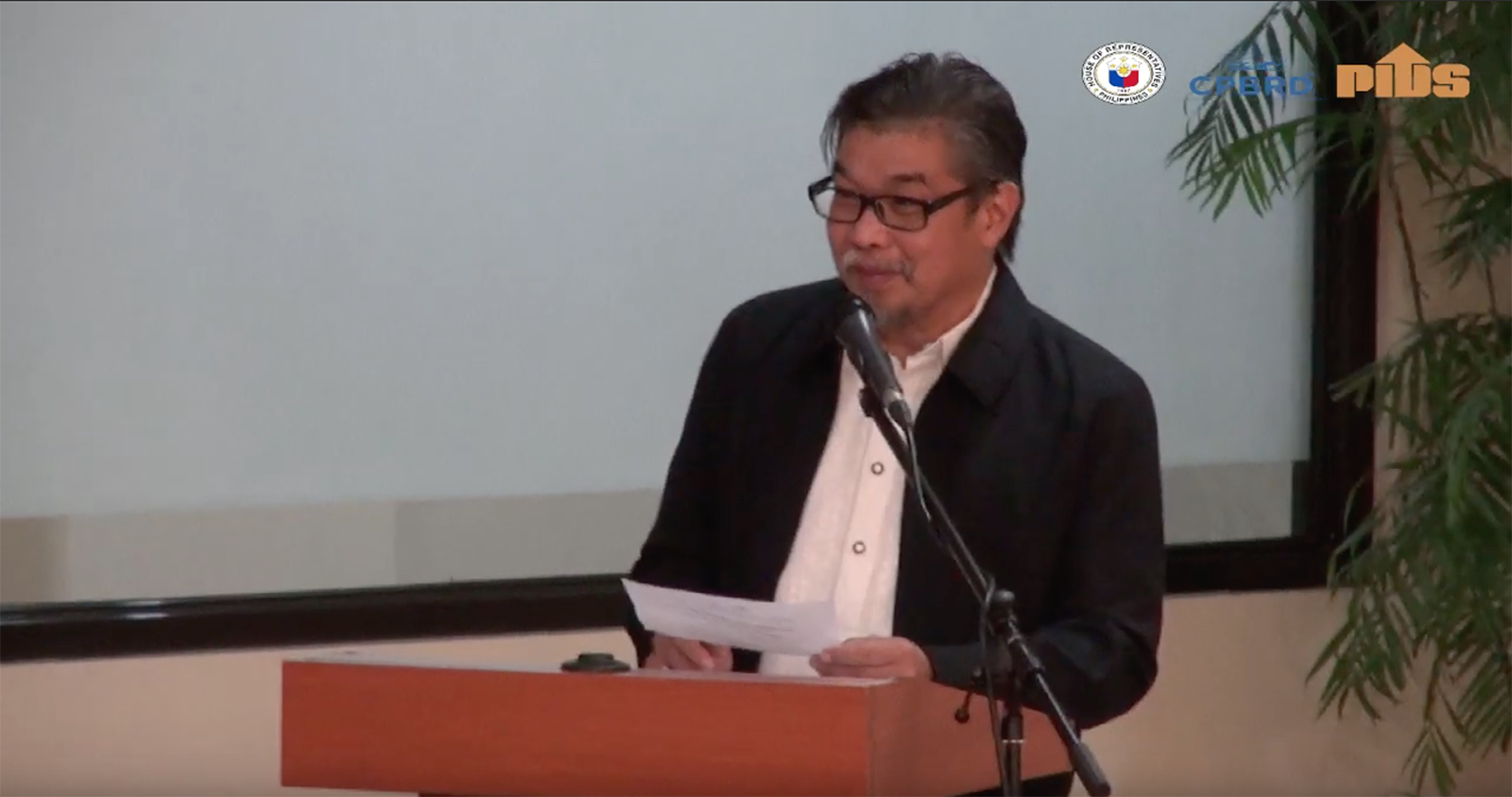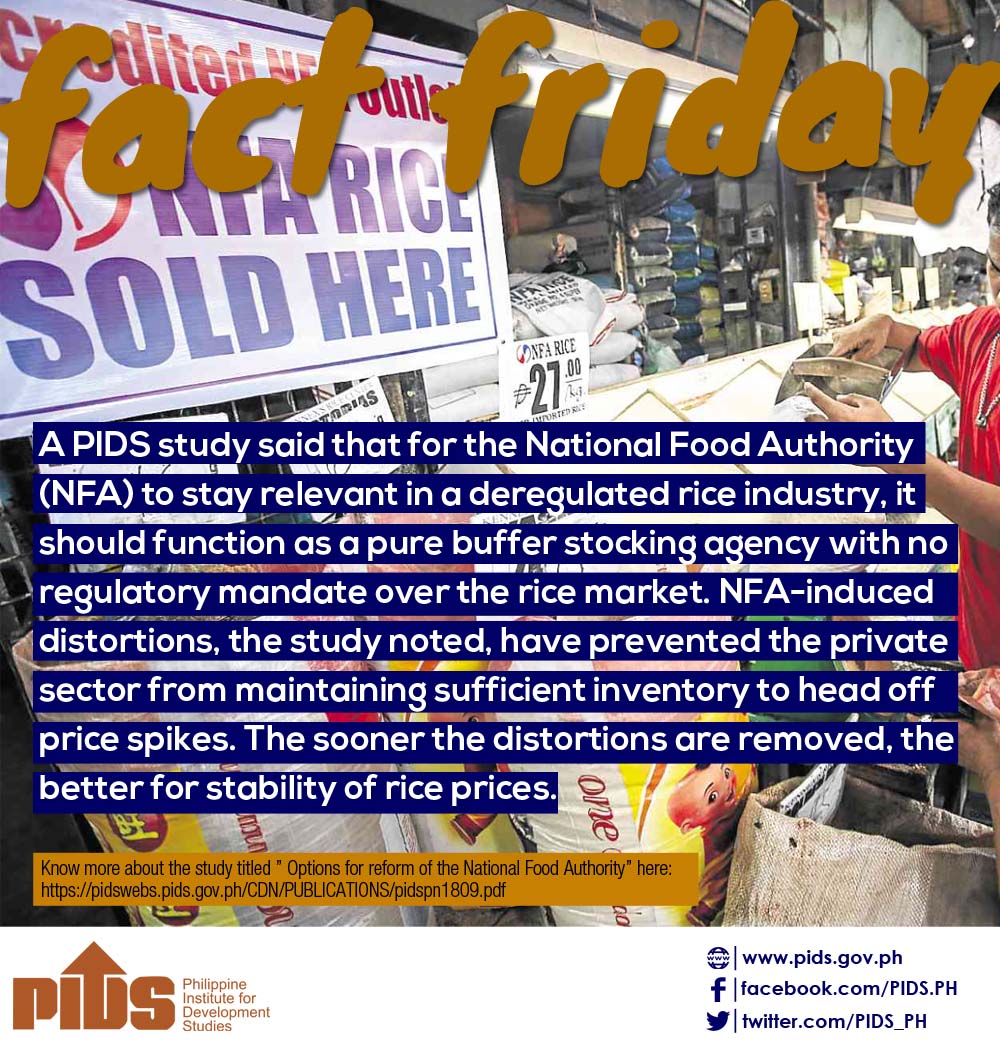THE National Food Authority (NFA) is spending P5.638 billion to import 250,000 metric tons (MT) of rice to prop up its dwindling buffer stock during the lean months, when rice harvest goes down significantly.
The Approved Budget of the Contract [ABC] is estimated at P5.63 billion for the 250,000 MT. Bases of the computation were the prevailing FOB price, expense rates of freight, insurance and other incidental/dispersal costs and foreign-exchange rate at $1=P50,” the TOR read.
Under the TOR, the NFA said prospective bidders will bid for the imported volume on a lot basis.
Prospective bidders may bid for any of the lots, provided that the bid must be the minimum/maximum of the imported rice allocated per lot but the maximum quantity to be awarded per supplier must not be higher than 50,000 MT,” it read.
The opening of the bids and award of the contract to the bidder with the lowest calculated responsive bid shall be on a per lot basis. Rice must be shipped in break bulk,” it added.
The NFA said it will hold a prebid conference on July 13 and that the proper bidding is scheduled on July 25.
The government’s purchase of rice through the G2P scheme is covered by Republic Act 9184, or the Government Procurement Reform Act, which provides that the lowest bidder would be named as supplier.
The NFA has broken down the 250,000 MT into eight lots with corresponding funding allocation, volume quantity and designate port of discharge.
The NFA said the ABC per lot would be the ceiling for the acceptable bid, thus, any bid higher than the allotted ABC per lot will not be accepted.
Two lots have allocations of 50,000 MT while the remaining six were allotted 25,000 MT. Each 50,000-MT lot has an ABC of P1.127 billion, while each 25,000-MT lot has a maximum bid cost of P563.85 million.
The NFA also divided the delivery of the 250,000 MT into two periods: August and September. The NFA said 120,000 MT of rice should arrive within August, while the remaining 130,000 MT should arrive by September.
Early shipment shall be allowed, provided arrival dates of all vessels are within the required arrival period of the disports,” the NFA said.
However, the buyer [NFA] may reschedule arrival period as it may deem necessary without additional cost to the buyer in accordance with the provisions of this terms of reference, provided that the other party is duly notified thereof,” the TOR read.
The NFA has desginated eight designated ports with corresponding quantity: San Fernando, La Union (20,000 MT); Batangas City (30,000 MT); Tabaco City (25,000 MT); Cebu City (25,000 MT); Cagayan de Oro City (25,000 MT); Davao City (25,000 MT); General Santos City (10,000 MT); and Manila (100,000 MT).
NFA Spokesman Marietta Ablaza said the food agency is confident that winning suppliers for the 250,000 MT of rice will comply within the scheduled date of arrival.
If they will not follow the provision they will be penalized. I think they will do everything to follow the arrival schedule because these are businessmen, they don’t want to be fined,” Ablaza told reporters in an interview on Thursday.
She said the arrival of rice imports per lot will vary as it will depend on the winning supplier.
The nearest would be Vietnam while the farthest would be India. It doesn’t matter who wins the bidding but what is important is that it enters the country during the prescribed arrival period,” Ablaza said.
She added that the NFA Council decided to schedule the import arrivals before the end of September so as not to affect the price of palay when the harvest season begins in October. The lean season for palay in the Philippines is from July to September.
Philippine Institute for Development Studies (PIDS) senior research fellow Roehlano Briones said the importation will not affect the price of palay as the expected volume will just beef up the NFA’s inventory.
However, Briones noted that prices could move due to speculation.
The importation will not affect the market unless there is perception that the NFA has a lot of stock and they do not want to unload it,” he told the BusinessMirror.
Briones said the move of the NFA to shift to a G2P scheme would give the government elbow room to get a better deal.
Of course, this is good because you are not in a hurry, there’s no immediate need or emergency. It’s better because it’s more transparent than G2G [government to government] and you would know more the better price,” he said.
Briones also said the price of rice in the world market will not go up, as the volume being imported by the Philippines is “too small”.
The Approved Budget of the Contract [ABC] is estimated at P5.63 billion for the 250,000 MT. Bases of the computation were the prevailing FOB price, expense rates of freight, insurance and other incidental/dispersal costs and foreign-exchange rate at $1=P50,” the TOR read.
Under the TOR, the NFA said prospective bidders will bid for the imported volume on a lot basis.
Prospective bidders may bid for any of the lots, provided that the bid must be the minimum/maximum of the imported rice allocated per lot but the maximum quantity to be awarded per supplier must not be higher than 50,000 MT,” it read.
The opening of the bids and award of the contract to the bidder with the lowest calculated responsive bid shall be on a per lot basis. Rice must be shipped in break bulk,” it added.
The NFA said it will hold a prebid conference on July 13 and that the proper bidding is scheduled on July 25.
The government’s purchase of rice through the G2P scheme is covered by Republic Act 9184, or the Government Procurement Reform Act, which provides that the lowest bidder would be named as supplier.
The NFA has broken down the 250,000 MT into eight lots with corresponding funding allocation, volume quantity and designate port of discharge.
The NFA said the ABC per lot would be the ceiling for the acceptable bid, thus, any bid higher than the allotted ABC per lot will not be accepted.
Two lots have allocations of 50,000 MT while the remaining six were allotted 25,000 MT. Each 50,000-MT lot has an ABC of P1.127 billion, while each 25,000-MT lot has a maximum bid cost of P563.85 million.
The NFA also divided the delivery of the 250,000 MT into two periods: August and September. The NFA said 120,000 MT of rice should arrive within August, while the remaining 130,000 MT should arrive by September.
Early shipment shall be allowed, provided arrival dates of all vessels are within the required arrival period of the disports,” the NFA said.
However, the buyer [NFA] may reschedule arrival period as it may deem necessary without additional cost to the buyer in accordance with the provisions of this terms of reference, provided that the other party is duly notified thereof,” the TOR read.
The NFA has desginated eight designated ports with corresponding quantity: San Fernando, La Union (20,000 MT); Batangas City (30,000 MT); Tabaco City (25,000 MT); Cebu City (25,000 MT); Cagayan de Oro City (25,000 MT); Davao City (25,000 MT); General Santos City (10,000 MT); and Manila (100,000 MT).
NFA Spokesman Marietta Ablaza said the food agency is confident that winning suppliers for the 250,000 MT of rice will comply within the scheduled date of arrival.
If they will not follow the provision they will be penalized. I think they will do everything to follow the arrival schedule because these are businessmen, they don’t want to be fined,” Ablaza told reporters in an interview on Thursday.
She said the arrival of rice imports per lot will vary as it will depend on the winning supplier.
The nearest would be Vietnam while the farthest would be India. It doesn’t matter who wins the bidding but what is important is that it enters the country during the prescribed arrival period,” Ablaza said.
She added that the NFA Council decided to schedule the import arrivals before the end of September so as not to affect the price of palay when the harvest season begins in October. The lean season for palay in the Philippines is from July to September.
Philippine Institute for Development Studies (PIDS) senior research fellow Roehlano Briones said the importation will not affect the price of palay as the expected volume will just beef up the NFA’s inventory.
However, Briones noted that prices could move due to speculation.
The importation will not affect the market unless there is perception that the NFA has a lot of stock and they do not want to unload it,” he told the BusinessMirror.
Briones said the move of the NFA to shift to a G2P scheme would give the government elbow room to get a better deal.
Of course, this is good because you are not in a hurry, there’s no immediate need or emergency. It’s better because it’s more transparent than G2G [government to government] and you would know more the better price,” he said.
Briones also said the price of rice in the world market will not go up, as the volume being imported by the Philippines is “too small”.

